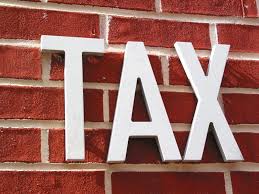Factors to Consider when Choosing a Tax Defense Lawyer
A tax on properties and income is an expense paid by a property owner. It is levied by the governing authority of a jurisdiction, which is typically a federated state, county, or municipality. A percentage of the property’s value is added to the owner’s income. In some jurisdictions, taxes on tangible personal property are deductible. The property tax rate can vary depending on the jurisdiction. The following are the two most common types of property taxes.

A property tax is paid on the market value of a property. It is calculated on a percentage of the property’s market value, and is paid quarterly. The federal government’s initial rate for the LPT is 0.8% of the value up to EUR1 million. The rate for over-adjusted properties can be as high as 0.25%. The rate for property taxes is determined by the local authority, and can vary by up to 15%. This tax is paid annually and can be on the entire value of the property.
Property taxes are assessed on the market value of real estate, and are based on the amount a property would sell for in an arms-length transaction. The government may base this assessment on the last sale price of the property, on the income generated by the property, and on the size and physical attributes of the property. There are also different times for assessments, and some jurisdictions may have several years between assessments. In addition to the value of the property, the tax rate is calculated based on the cadastral rental value.
A property tax can be reduced in a couple of ways. For example, a rental property can show a loss or no income for tax purposes. Another option is to collect the first and last month of rent from the tenant when they move in and out. The owner can then deduct these payments as income in the year they move in and the year they move out. This is a way to avoid paying more than necessary.
A property tax is a tax on the value of a property. The value of the property is taxable, but some states allow the homeowner to deduct as much as 20% of the assessed value. This is known as the benefit principle, and it is based on the principle that the tax should relate to the benefit the taxpayer receives. In other words, taxes on property should be proportional to the benefits the property owner receives.
Property taxes on tangible personal property are problematic. While they are relatively stable, they can also cause an enormous amount of economic damage. For example, taxes on real estate can be very onerous for those who are not wealthy. If you own a home and are using it as a rental, it is not likely to be taxed on the profit. But if you’re renting out a property and only plan to use it for a few days a year, you can deduct expenses up to the amount of rental income, but not more. Click here to get a free consultation with a Louisiana tax attorney.